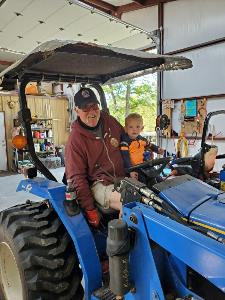 The following questions are from an interview in 2014:
The following questions are from an interview in 2014:
Q1: Describe your current position/role.
Bob is currently the Program Manager for the United States International Space Station (ISS) integration contract with National Aeronautics and Space Administration (NASA).
Q2: What are one or two of your proudest professional accomplishments?
Bob’s proudest accomplishment is creating and implementing a training program for the US astronauts and ISS team that integrated hardware from the European Space Agency after the US Challenger disaster. Secondly, Bob is proud of designing the space traffic and supply model for the US, Russian, Japanese, and European space agencies when the US joined the USS. The model is used to estimate the cost-per-pound for delivering astronauts and material to the ISS. It includes the number of flights, specific launch vehicle(s) and pounds of cargo. It also models the service life of launch vehicles and docking components based on force-of-impact analysis and supply schedule.
Q3: What is the biggest challenge you face as a Systems Engineer?
The greatest challenge Bob faces is getting team members to understand the operational needs before designing a solution in order to prevent building a system that meets the stated requirements but does not work. This involves getting all stakeholders, including the customer and subcontractors, involved and continually tailoring the design process as needed.
Q4: What advice do you have for individuals starting their career as a Systems Engineer?
Bob advises young Systems Engineers to understand their project’s system life cycle phases and stages. He also advises taking advantage of whatever opportunities one’s role in the project has and to "grow where you are planted."
Q5: How do you continue to learn about SE? What professional development activities do you do?
Bob continues to learn about Systems Engineering by teaching. He believes this is the best way to learn SE really well. He also mentors Booz Allen Hamilton (BAH) team members as they go through the INCOSE certification process by giving advice on preparing for the exam and reviewing application packages. Bob is helping to build a SE practice knowledge repository by collecting other SE project's artifacts such as design documents, configuration management (CM) plans, and project plans.
Q6: What are the next career goals you want to achieve?
The next career goal for Bob involves transitioning from hands-on work to consulting and design by reviewing the customer's problem/solution sets and helping them implement their solution.
Q7: What are some of your hobbies/interest outside of work?
Bob lives in the country on 10 wooded acres with horses. He plans to spend time with his tractor clearing the pastures and fields. He also likes fishing and traveling and plans to do more of that.
In 2021, we reached out to Mr. Gates to answer more questions:
Q8: Why did you decide to get the SEP certification?
Decision for SEP - my supervisor at the time was involved with INCOSE and recognized the value of this certification not only in our work but also for business development. It became a professional development action. Even though I have over 20 years experience the actual certification was not an easy step. When I got the certification I was proud of what I had accomplished and learned a lot along the way that changed how I approached Systems Engineering. It also developed a keen interest in networking with other SEs and also helping staff reach SEP certification.
Q9: How does the SEP certification impact your professional career?
SEP impact on my career - first off it changed how I approached engineering challenges within human space exploration and secondly it energized me to go further and assist others doing the same. I moved on to the ESEP certification and became recognized within my firm as one of the key Systems Engineering stewards. In this role I helped design, develop and implement a large scale SE training and certification program. My name became associated with several major contract wins and I became one of the few ‘go to’ SEs in the company. I had the privilege of aiding other programs resolve their SE issues. Financial and award recognition was also experienced.
Q10: What has surprised you in the past five years related to systems engineering?
Past 5-year surprises - after I became an ESEP I started paying back INCOSE by becoming a Certification Application Reviewer (CAR) reviewing certification packages for both CSEP and ESEP applications. In doing so I have been absolutely amazed at how many industries are using and valuing System Engineering principles. I always understood the value of Systems Engineering but had no idea how many other industries were adopting these principles. From software development, aerospace, hospitals, auto industry to any form of manufacturing they all recognize the value of repeatable and well-organized processes throughout the life cycle of a project, program or making of a widget.
Q11: What job titles have you had other than “Systems Engineer?”
Other job titles - I’ve been titled Senior Field Technician (Testing Nuclear Events), Technical Trainer (Teaching Satellite Operations and Control), Telemetry Technician (operating satellite ground stations), several forms of Systems Engineer on specific projects, Branch Manager, Chief Systems Engineer and an SE Consultant.